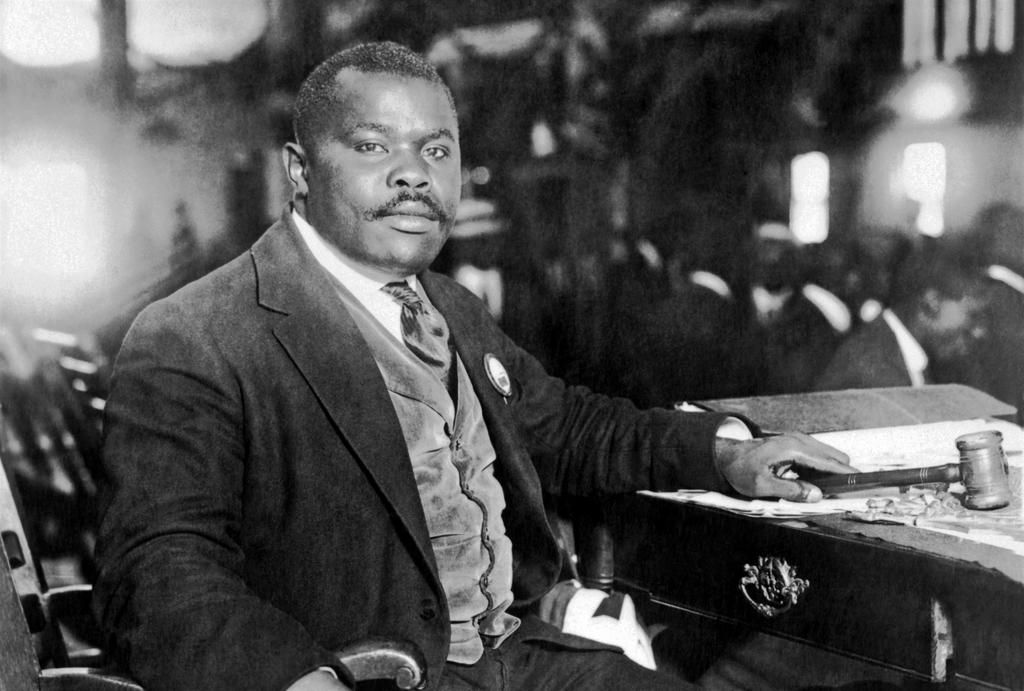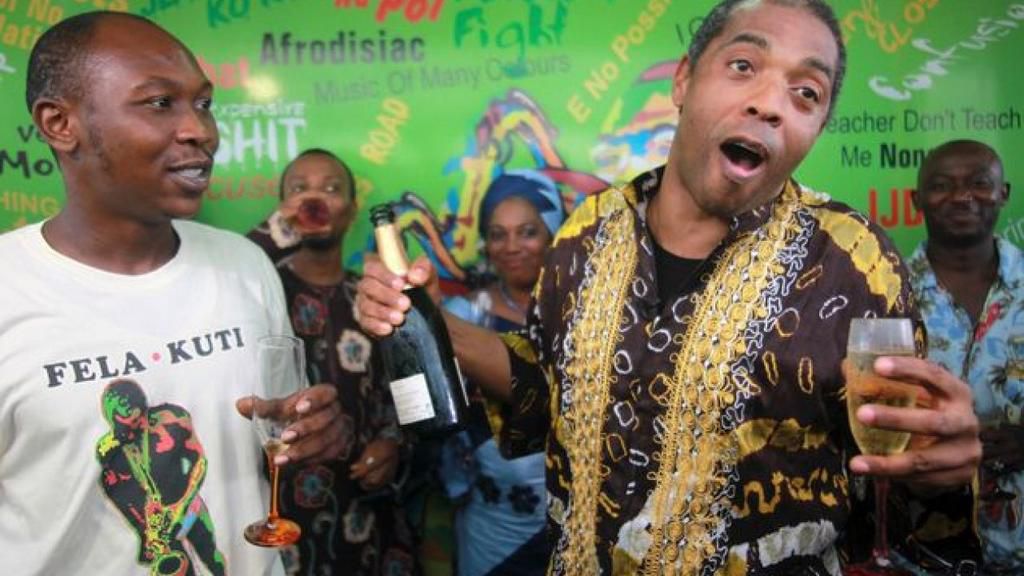A political commentary on Burna Boy's 'African Giant' album
)
There’s something slightly different about Burna Boy’s fourth LP ‘African Giant’. You don’t have to dig for long to find out what it is.
From the first track (also the title track), the album pitches itself as a hybrid animal roaming through the concrete jungle landscape that birthed contemporary Nigerian pop music (Afrobeats /Afropop/Afro Fusion), even though this difference might be inappreciable to those without a pair of discerning ears.
The very first line goes thus “tell them Africa don tire” in Pidgin English (spoken by 75 million Nigerians). For Damini Ogulu, he is tired of the oppression in his continent.
Why is this unusual?
Afrobeats is devoid of political commentary. It denies the reality of what it means to live in modern day Nigeria.
The self-proclaimed African giant slightly alters the tapestry of his new album to accommodate the realities of life in a country known as the ‘giant of Africa’, an ironical tag these days.
Oil has been more of a curse than a blessing to the most populous black nation in the world. Discovered in January 1956, in Oloibiri Oilfield, Bayelsa, 45 miles from the east of Port-Harcourt where Burna Boy was born, crude oil hasn’t wiped away the impoverishment in Nigeria.
The South-South region known as Niger-Delta has been polluted by oil companies. While the political class eat from the riches of the land, the poor are left to deal with the devastating effects of environmental pollution.
Nigeria is the poverty capital of the world. It is the common denominator all across the country. Whether in places like Lagos city (population: approximately 20 million), the North-East (ravaged by terrorism) or the South-East (that still holds painful scars from the civil war that led to the death of 3 million people), poverty is strife.
You won’t know this though, with the sheen and gloss sprayed all over the shiny crossover Afrobeats singles aiming to land on the Billboard chart.
Sitting on top of this pile of poverty is Aliko Dangote (estimated wealth $10.6bn), the richest man in Africa and in 2014 was hailed as the 24th richest man on earth. While in Western societies, billionaires are perceived to be ruthless capitalists who prey on the poor, in Nigeria, they are seen as a point of contact in many prayers.
‘Dangote’ is the title of the fourth single off ‘African Giant’. The song takes the persepective of a hustler who refuses to sleep until he finds his pot of gold.
The life expectancy in Nigeria is 54.5 years old. With an inadequate health system that has failed to cater to 190 million Nigerians, the difference between life or death when you are sick is to have the funds to travel abroad. An impossibility for most Nigerians.
For millions of Nigerians, money is not an option, it is a necessity for survival.
You might want to ask a question here, “if the country is so bad why don’t Nigerians fight for change?”
Well, the great African human rights activist (and Afrobeat creator) Fela Anikulapo-Kuti postulated his theory on why Nigerians never fight for change in 1977. On the track ‘Sorrow, Tears, Blood’ he observes that Nigerians prefer to run than fight in the face of oppression. This theory is the cornerstone of one of the key tracks on ‘African Giant’.
‘Collateral Damage’ anchored by a sharp guitar riff is a commentary on how the ruling class are our puppet masters. While they loot the treasury, they order us to fight ourselves, the classic divide and conquer strategy.
Tribalism, religion and in more recent times toxic political partisanship have been the spears the Nigerian political elite hand to the masses to fight themselves. While young Nigerians sling insults at themselves over party alliances and Southerners fear the Islamization of Nigeria, the Nigerian senators and representatives continue to earn fat salaries coming up with bills and laws that do nothing to positively impact the life of the common man.
“We be our own problem” sings Burna Boy as he criticizes Nigerians (and might I add, young Nigerians who would rather tweet-fight about APC/PDP than talk about the issues facing the country).
Political activist Marcus Garvey once said, “a people without the knowledge of their past history, origin and culture is like a tree without roots.”

From September 2019, history will be re-introduced to Nigerian primary schools and secondary schools as a standalone subject. There are millions of Nigerians who have scant knowledge of Nigeria’s history.
Therefore it was no surprise that the track ‘Another Story’ featuring M.anifest left many people on Twitter shocked like a Game of Thrones plot twist.
Starting with a documentary clip revealing the shocking origin of Nigeria as a commercial entity, Burna Boy wails that Nigerians have been in pain since October 1st, 1960. “Shey we go dey cry forever?” he asks before borrowing lines from the unforgettable ‘E dey pain me gaga’ by Stereo Man.
The song plays like a never ending saga, a harrowing tragedy of great potential that continues to waste.
Afrobeats is escapism on steroids. It has no reflection of the intense and dark environment it was created from. Excessively materialistic, and hedonistic, this genre exudes the party and bullsh*t ethos to the point of borderline vulgarity and ad nauseam.
The common trope in Afrobeats is money...lots of it. Many of the Afrobeats singers in Nigeria come from the 95%, the have-nots, the financially disenfranchised, the poor. Whether a mid-tempo cut or a fast paced club jam, you can bet your last Naira on what the singer is crooning about, money, fast cars, faster women and big balling.
For the genre, wealth (or the vigorous pursuit of it) helps escape the stark reality of life in Nigeria.
Ideally, pop music has no business with political and social commentary but it is slightly odd that a genre of music that is obsessed with the pursuit of what does not exist in its society, hardly touches on the lack of it. Afrobeats turns a blind eye to reality and strings ballads for fantasies.
Art imitates life. Whatever we see in Afrobeats videos or hear in Afrobeats hit singles only reflects the zeigest or spirit of the times. Nigerians want to buy jeeps because of the bad roads that lead to home. They hustle for money because they do not know what tomorrow may be bring. They turn a blind eye to the many failings of the incompetent political class because they have mentally seeceded from the country.
Nigerians have adapted to a life of “continual fear, and danger of violent death”, a life that is “solitary, poor, nasty, brutish and short.”
And to escape this daily trauma of life in Nigeria, we seek the opium of the masses, religion. We pray to God for money to build houses and buy cars. Is this familiar? Add video vixens and what you have are the common features of your average Afrobeats music video.
Even though the moments of political consciousness on ‘African Giant’ are brief, they are welcoming and refreshing.
To hear more politically charged songs from Nigeria, you would have to listen to Afrobeat, the undistilled and forceful genre of music founded by Fela. Afrobeats stars might get all the love today, but Femi and Seun Anikulapo-Kuti, the sons of late Fela Kuti still hold true to the social and political origins of the genre their father created.

The two brothers are very popular in Nigeria. They have five Grammy nominations between themselves and constantly tour round the globe. To understand what is really happening in Nigeria, listen to the Kutis.
If you want to fantasize about Nigeria or desire lite-weight Nigerian content, then Afrobeats is your cup of tea. Escape the realities and bask in the alternative fueled by survival instincts to make it by any means necessary.
Burna Boy is in between the two sides. Though he leans heavily on the ‘party and bullsh*t’ ethos of Afrobeats, he once in a while offers realism in his work of art, a realism that is much needed.
We all deal with trauma differently. While some might want to embrace the reality of it, others choose to deny it and create an alternative reality. Afrobeats is the alternative reality of what is Nigeria. And you cannot deny that this alternative world does not sound good.
)
)
)
)

)
)
)
)
)
)
)
)
)
)